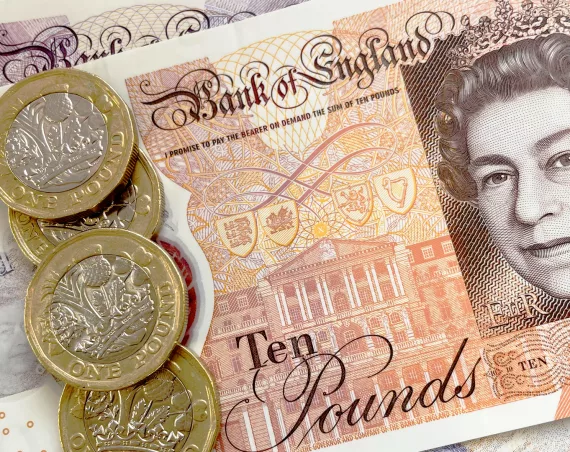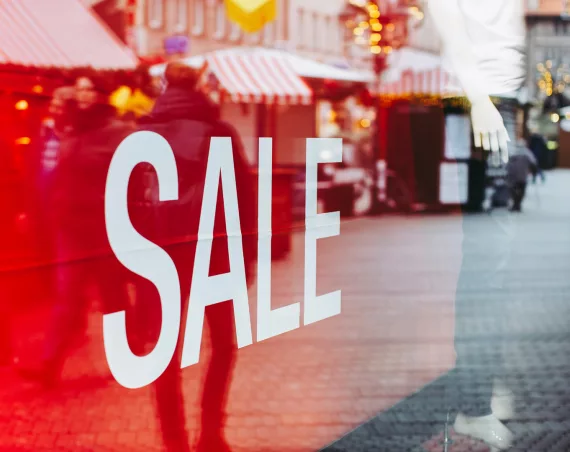
Phrasal verbs for shopping
Photo by Artem Beliaikin on Unsplash
Powered by RedCircle
Photo by Artem Beliaikin on Unsplash
Hello and welcome to Learn English Vocabulary. My name is Jack and I’m making this podcast for you to learn or revise English vocabulary. You can find a transcript of this podcast on LearnEnglishVocabulary.co.uk. There’s a page for this podcast with the transcript, an activity and a task for you to do in the comments section.
Today, I want to focus on some A2 phrasal verbs that you can use when you are going shopping.
I’m going to present this language through a short dialogue and then I’ll look at each of the phrasal verbs and then you can listen to the dialogue again.
The phrasal verbs I’m going to focus on today are: pop in, look for, pick up, shop around, set you back, look out for, sell out, queue up, try something on and take something back.
When you listen to the dialogue, try to notice these phrasal verbs.
Jack: Are you doing anything this afternoon?
John: Yes – I was going to pop into town to do a bit of shopping.
John: Oh yes? Are you looking for anything in particular?
John: Well, it’s my sister’s birthday next week so I wanted to pick up something for her. She likes Ugg boots, but they are a bit pricey so I like to shop around.
John: Yeah – they can set you back a bit.
John: I know. I’m always looking out for a bargain. When there’s a sale on, you can sometimes find a pair that aren’t too expensive.
John: But they do sell out quickly. You’ll be lucky to find a pair today.
John: I know. I may try and find her something else.
John: What about some gloves from that new leather shop?
John: That’s not a bad idea, I’m sure she’d like some of those. The only thing is the shop is always so busy.
John: I know, it’s always packed in there.
John: And it takes so long to pay. You always have to queue up for ages.
John: And do you know her size? It’s a bit risky buying gloves without trying them on.
John: Yeah, but she can always take them back and exchange them if they don’t fit her.
OK – did you hear all of the phrasal verbs?
The first was to pop in or pop into. To pop in means to visit something quickly, just for a short visit. It’s informal and implies that the visit was not planned a long time before. If you are walking through town and see something in a shop window that you like the look of, you might just pop in to see it. We use pop in without an object. I was walking past and decided to pop in. If you say the place, you can use pop into. I decided to pop into the pub for a quick pint on my way home from work. You can also pop round which means to make an unplanned visit to someone’s house. For example: I’m going to pop round my dad’s later to ask to borrow his camera.
The second phrasal verb is look for. If you are looking for something, you are trying to find something. In a shopping context, it means you want to buy something. So you could visit a music shop and tell the assistant that you are looking for the new album by … your favourite band.
To pick up something in the context of shopping means to buy something. This is a separable phrasal verb so you can pick something up and pick up something. It is quite informal and so we normally use it for small purchases that don’t require a lot of planning. I might pick up a small treat for the kids or I might pick up some milk if we have run out. However, pick up can also mean collect so if you buy a new car, you might have to order it and then go and pick it up later.
To shop around means to look in different shops to find the best price or best option. As different shops sell things for more or less money, you can shop around, you compare prices and find the cheapest deal. You can shop around in the town centre or you can shop around online if you can compare prices on different online stores. I like finding a bargain online so probably spend too much time shopping around.
To set you back a bit or set you back plus an amount of money means to cost that much. If something set you back £100, you spent £100 on it. This phrasal verb is quite advanced. I think it implies that whatever you bought was expensive and you had to spend a proportion of your money to buy it. So, it’s like saying that you have to save your money after you have bought something that set you back. Most of the time, it’s used to say that something is expensive. You might hear: I bet that set you back a bit. Which means I bet, or I reckon, or I think that was expensive.
The next phrasal verb, to look out for, is another quite advanced phrase. It is most commonly used in the continuous – so you are looking out for something and it means you want to buy something that is not very common. I like searching the online second hand markets for guitars and other instruments. I’m always looking out for a bargain, that is for an instrument that is being sold for a low price. We also use the slightly longer phrase to be on the lookout for something. I’m on the lookout for a new car. This is exactly the same as to be looking out for. Another phrase we use that means the same thing is to be on the market for something. So you might tell someone: I hear you’re on the market for a new car. There are some great deals at the garage near me.
The next phrasal verb is to sell out. This means that a shop sells all of its stock of an item. I wanted to buy a christmas tree at the weekend, but the one that I wanted had sold out. The shop had sold all of their stock, all of the type that I wanted to buy. I used to live in Ludlow and there was a market twice a week and there was a lady who sold amazing sausage rolls. I’m sure she still sells them there so if you are ever in Ludlow, I recommend them, but you have to get there early because she sells out by about 11 o’clock most days. My sons were disappointed on many occasions when we were in town as the sausage roll lady had sold out.
To queue up for something is an interesting phrasal verb. It just means to join a queue for something. I think that you could just say queue. It’s a bit like stand up. You can only be up when you stand. And sit down. If you are standing, you have to go down, but it sounds strange to just say sit, even though the meaning is perfectly clear. Please queue up along the wall. Please queue along the wall. Both of these are OK. We do use the phrase queue up for something to say that lots of people want to do something. So if the manager quits, people will be queuing up to apply for his job. There won’t be a physical queue, but lots of people will want to apply. We wouldn’t use queue in that sense so perhaps that’s why we use
up It makes it sound like people are eager to buy something. Lots of people were queuing up for the new iphone … People were queuing outside the bank to try to withdraw their savings. That sounds right to me.
To try something on means to wear an item of clothing that you are thinking of buying to see if it fits. When you are shopping, you can take some clothes to the fitting room or the changing room, so you can take of your clothes and try on the clothes you are thinking of buying to see how well they fit you. That is, to see if the size is right. This is most important, I think, when you are buying shoes. I always wear the same shoes. I tried a pair on in the shops about 8 years ago and I love them so much that I always look for exactly the same shoe online. That way, I can buy them from home without worrying about trying them on.
The last phrasal verb is to take something back. The literal meaning of this phrase is almost the same as the phrasal verb meaning. If you buy something and when you get it home you decide that you don’t like it or perhaps, it doesn’t fit, then you can take it back to the shop, literally and then give it to the shop and get a refund, which is the phrasal verb meaning. So to take something back means to return an item to a shop to get a refund.
OK. That’s 10 phrasal verbs related to shopping. Listen to the dialogue once more to hear the phrasal verbs in context.
Jack: Are you doing anything this afternoon?
John: Yes – I was going to pop into town to do a bit of shopping.
John: Oh yes? Are you looking for anything in particular?
John: Well, it’s my sister’s birthday next week so I wanted to pick up something for her. She likes Ugg boots, but they are a bit pricey so I like to shop around.
John: Yeah – they can set you back a bit.
John: I know. I’m always looking out for a bargain. When there’s a sale on, you can sometimes find a pair that aren’t too expensive.
John: But they do sell out quickly. You’ll be lucky to find a pair today.
John: I know. I may try and find her something else.
John: What about some gloves from that new leather shop?
John: That’s not a bad idea, I’m sure she’d like some of those. The only thing is the shop is always so busy.
John: I know, it’s always packed in there.
John: And it takes so long to pay. You always have to queue up for ages.
John: And do you know her size? It’s a bit risky buying gloves without trying them on.
John: Yeah, but she can always take them back and exchange them if they don’t fit her.
I hope that you have enjoyed these phrasal verbs. There is an activity on the Learn English Vocabulary website and there’s a task for you to do in the comments section.
Thank you for your comments on Apple podcasts and on the Learn English Vocabulary website. It really does mean a lot to me to hear that you appreciate these podcasts. Please do continue to send me suggestions and requests and although it might take me a while to make it to your topic, I will … eventually … be delighted to make a podcast for you.
Thanks for listening.
Task
Answer these questions in the comments below.
- When was the last time you went shopping?
- Do you like shopping around and trying to find a bargain?
- Are you on the lockout for anything at the moment?
- What was the last thing you had to take back?
- Do you prefer shopping in a town, in a mall or online?





3 Comments
Barbara
This is my second visit on this website . The podcast has an interesting formula. It gives you the opportunity to expand your vocabulary not only with the discussed ones. In my opinion, these lessons are such a higher level of learning for those who really want to expand their vocabulary. Congratulations!
Antonio
Hi! Jack
How are you? I´m Antonio From Mexico. It’s been a long time since I didn’t attend to your website. Premier league and this one.
Well. Thank you so much, my friend. I´m looking forward to hearing you again.
Blessings.
alioscia
Hello Jack
I loved so much this episode because I work in a shopping mall and these phrasal verbs can be so useful when speaking with tourists from other countries. Keep on posting you’re doing great
greetings from italy